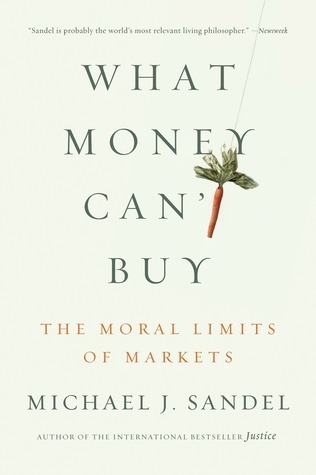More on this book
Community
Kindle Notes & Highlights
Read between
April 25, 2019 - March 18, 2020
we need to think through the moral limits of markets. We need to ask whether there are some things money should not buy.
Why worry that we are moving toward a society in which everything is up for sale? For two reasons: one is about inequality; the other is about corruption.
when we decide that certain goods may be bought and sold, we decide, at least implicitly, that it is appropriate to treat them as commodities, as instruments of profit and use.
How can we decide which goods should be bought and sold, and which should be governed by nonmarket values?
Should patients be able to jump the queue for medical care simply because they can afford to pay extra?
the ethic of the queue—“first come, first-served”—is being displaced by the ethic of the market—“you get what you pay for.”
The case for markets over queues draws on two arguments. One is about respecting individual freedom; the other is about maximizing welfare, or social utility.
market prices reflect the ability as well as the willingness to pay.
Since market prices reflect the ability as well as the willingness to pay, they are imperfect indicators of who most values a particular good.
The ethic of the queue, “First come, first served,” has an egalitarian appeal. It bids us to ignore privilege, power, and deep pockets—at least for certain purposes.
Is there anything wrong with answering the calls of your best (or most promising) customers first? It depends on the kind of good you’re selling. Are they calling about an overdraft fee or an appendectomy?


